
“Am I A Jerk For Leaving A Wedding To Eat At McDonald’s?”: Bride Lied To Her Guest When She Told Her She Wouldn’t Have To Pay For Anything At The Wedding
Everyone loves attending a beautiful wedding, but there’s no question that they can take a toll on our wallets. You may need to travel or pay for accommodation and taxis, and you can’t show up to the occasion empty-handed. Apparently, wedding guests can even be responsible for purchasing their own dinners.
Below, you’ll find a story that one woman recently shared online detailing how she had to leave her colleague’s wedding prematurely because she wasn’t prepared to be spending big bucks on a steak, as well as an interview with international wedding and elopement planner Valentina Ring.
Weddings can often be expensive to attend, as guests may be required to travel, pay for accommodation, and purchase presents
Image credits: freestocks.org (not the actual photo)
So after this woman learned that even a meal at the reception would cost her a pretty penny, she attempted to find a cheaper dinner elsewhere
Image credits: Omar Lopez (not the actual photo)
Credits: Historical-Warning31
The guest later answered some curious readers’ questions, providing more information about the situation
Throwing a big wedding can create a huge financial burden for the bride and groom
Image credits: Taha Samet Arslan (not the actual photo)
Weddings are such a joy to attend. Gathering with all of the friends and family members of the bride and groom is so exciting, and the whole evening is filled with happiness and celebration. But at the same time, weddings can be extremely expensive to host. If the bride and groom are more interested in throwing a massive party than having a modest courthouse ceremony, the bills can add up extremely quickly. According to The Knot, the average wedding in the United States in 2022 cost about $30,000. Of course, there are many factors that play into how much the event costs, such as where it is held, how many guests attend and how fancy the bride and groom’s taste are, but it’s certainly easy to rack up a big bill for your wedding day.
Nerdwallet breaks down the average costs of many aspects of a wedding on their site, noting that the average amount spent on a reception venue was a whopping $10,700, and the average cost of the bride’s dress was $1,000. A live band can cost a couple around $4,300, and even a DJ can charge $1,400. A photographer can charge about $2,500, and a videographer can charge $1,900. If you hire a wedding planner, be prepared to spend about $1,700 on them, and if you’d like to have nice flowers, your florist can charge about $2,300. Food certainly is not cheap when it comes to weddings either. The rehearsal dinner will usually cost the couple around $2,300, while the wedding cake can be around $500 and catering at the reception usually costs about $75 per guest.
To gain more insight on wedding etiquette in regards to this particular situation, we reached out to international wedding and elopement planner Valentina Ring, owner of The Stars Inside. Valentina was kind enough to have a chat with us about how common it is for wedding guests to be charged. “I would say it’s not very common in modern weddings for guests to be asked to pay an entrance fee, or pay for their own food – though many couples do opt to have cash bars in the evening,” she told Bored Panda.
But if guests are expected to pay for any portion of the evening, it’s important for them to be informed ahead of time
Image credits: fu zhichao (not the actual photo)
“Ultimately, it’s a question of culture, life circumstances, and also the established etiquette within certain communities. For example, in parts of the world, it’s widely accepted (and very welcome!) for couples to have a communal celebration where guests are asked to bring dishes to contribute to the day’s food offering; in other cultures, guests are invited and expected to bring cash gifts proportional to the experience and food they are receiving,” Valentina explained. “For multiple-day weddings abroad, it’s very common for the food and activities of the day before and the day after the wedding (attendance to which is typically optional!) to be subsidized by the couple, but to still require an investment by the guests should they wish to participate.”
“The most important thing to say is that there is no right or wrong, and every couple will choose to do what is right for them, their families, and their budget,” Valentina noted. “Couples may be hosting weddings while starting families, buying houses, starting businesses, paying medical bills, and so much more – and de-prioritizing wedding spending is something every couple has the right to do.” But it’s always important to manage guest expectations. “If the wedding celebrations are such that the guests will need to cover some of their food, alcohol, activities, accommodation, travel, and so on, then it’s really essential to make this clear in the invitation or the wedding website, so each guest can decide if the expense is one they are comfortable committing to. To be clear is to be kind,” Valentina added.
When it comes to what steps wedding guests should take when they realize they cannot afford the dinner, Valentina told Bored Panda that it is appropriate to leave in a tactful and considerate way. “Making loud complaints about the situation, or announcing your departure, will most likely burden the newlyweds and make them feel quite upset and guilty,” she explains. “Try to read the room, and think about the formality level of the wedding: if it’s, for example, a food-truck style, standing up, informal dinner, then it’s likely nobody will notice your absence and you can step in and out without causing disruption.”
“If, on the other hand, it’s a formal seated meal, it’s likely that you and your family have been allocated tables, and your absence would potentially cause an issue for the couple and for the catering team as well. It’s all about acting in good faith: if you are truly unwell, uncomfortable, or unhappy at a wedding, then of course removing yourself from the situation is appropriate, but do so with grace,” Valentina says. “Take the high road, and try to be considerate of the couple’s feelings as well, as they are most likely already concerned about everyone’s welfare and everything going well.”
“If you are truly unwell, uncomfortable, or unhappy at a wedding, then of course removing yourself from the situation is appropriate, but do so with grace”
Image credits: MART PRODUCTION (not the actual photo)
We were also curious if the responsibility falls on guests to ensure that the bride and groom are happy, or if the bride and groom are obligated to make sure their guests have a great time. According to Valentina, courtesy and kindness need to go both ways. “Couples worry about their guests all through wedding planning as part of a much bigger picture, and at any given time are juggling hundreds of opinions from friends, family, and acquaintances,” she explains. “No matter what the budget was, it’s a lot to spend on one day, and they are probably navigating a whirlwind of both joyous and anxious feelings. A guest being thoughtful, and contributing positively to the energy of the day, really does go a very long way – and will have a huge impact on the mindset of the couple.”
“On the other hand, couples do have a responsibility to make sure their guests are safe, comfortable, and are able to be fed – but it’s also important not to have strong expectations or a fixed sense of entitlement about what the couple can or should be able to afford,” Valentina goes on to say. “Ideally, the relationship is such that guests know and trust that the couple has made choices that are right for them, and make them happy – and vice versa, couples care for their guests and want to do everything they can to ensure they have a fantastic time. If you’ve been invited to a wedding that requires a spend you’re not comfortable with, and you have a close relationship with the couple, then just have an open and honest conversation with them. If, however, you don’t know them well enough, simply decline and avoid the drama. As Thumper teaches us, ‘If you can’t say something nice, don’t say nothing at all.'”
We would love to hear your thoughts on this topic in the comments down, below pandas. Have you ever attended a wedding where you had to pay for your own meal? Feel free to share, and then if you’re interested in reading another Bored Panda article discussing unexpected dinner costs at a wedding, we recommend checking out this story next. And if you’d like to learn more about Valentina and her wedding planning business, The Stars Inside, be sure to visit her website right here.
While not everyone agreed on how the woman handled herself, many readers were baffled by the idea of guests paying for their own meals
129Kviews
Share on FacebookExplore more of these tags
My fiancé and I are getting married next Saturday and are feeding all of our guests at no charge to them because, uhhh, they are our guests and we INVITED them to celebrate with us?!
exactly only money my guests spent was the gift checks they gave us out of their own free will. some guests didnt even do that but did we care no of course not. we were just happy to have ppl there since it was in 2020 and the pandemic was at a peak in cases.
Load More Replies..."you are cheaper than I though" says the bride that literally charges people she invited.
My fiancé and I are getting married next Saturday and are feeding all of our guests at no charge to them because, uhhh, they are our guests and we INVITED them to celebrate with us?!
exactly only money my guests spent was the gift checks they gave us out of their own free will. some guests didnt even do that but did we care no of course not. we were just happy to have ppl there since it was in 2020 and the pandemic was at a peak in cases.
Load More Replies..."you are cheaper than I though" says the bride that literally charges people she invited.

 Dark Mode
Dark Mode 

 No fees, cancel anytime
No fees, cancel anytime 








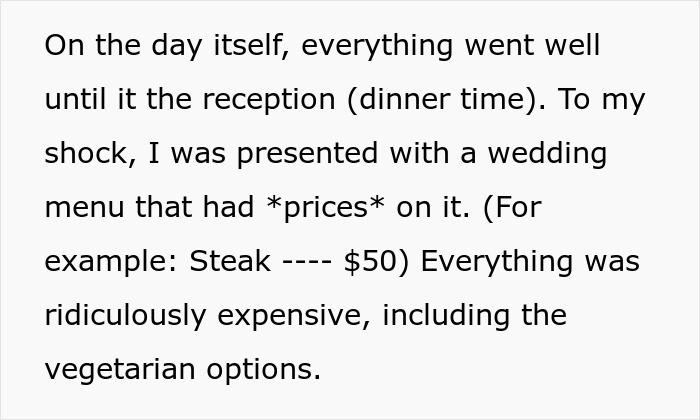

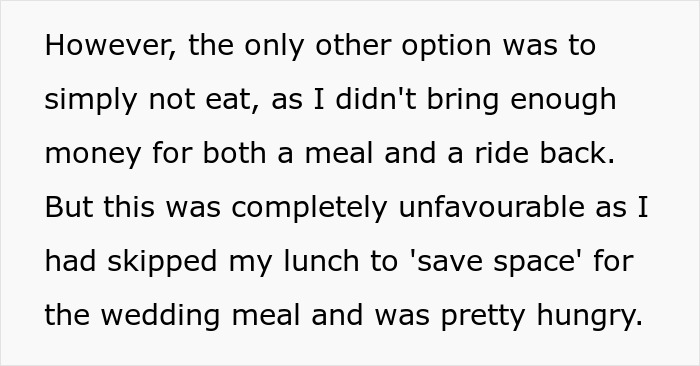
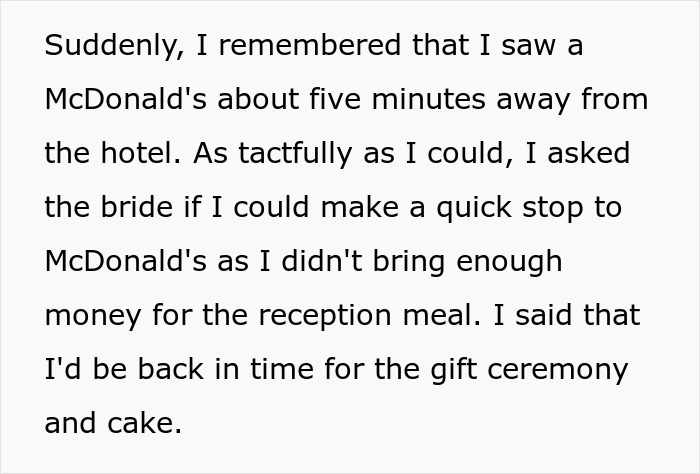
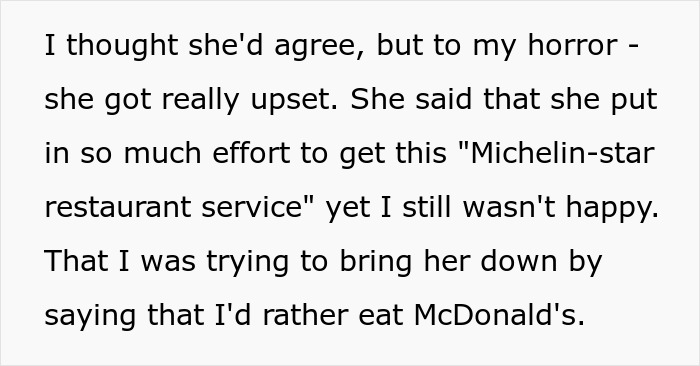








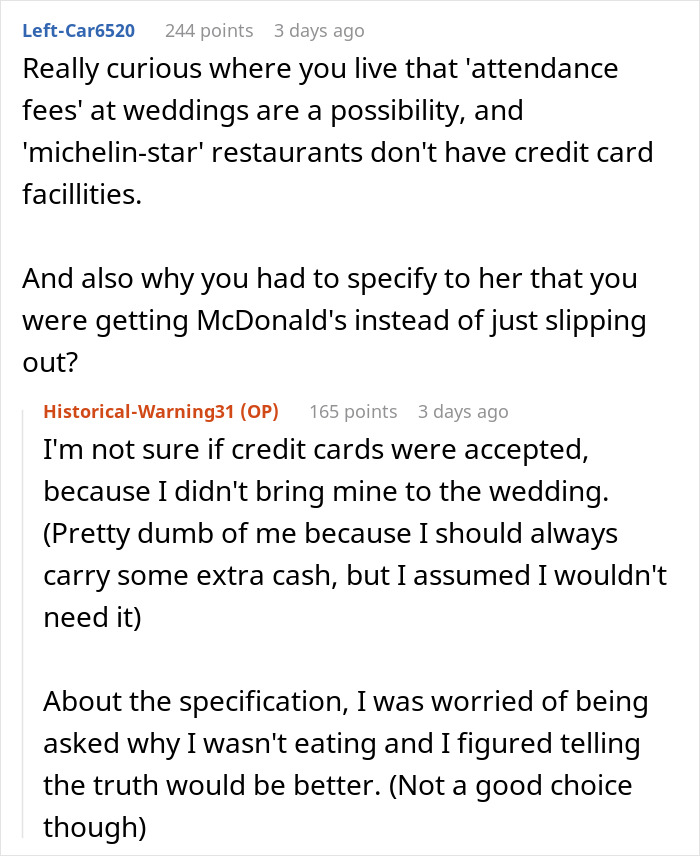
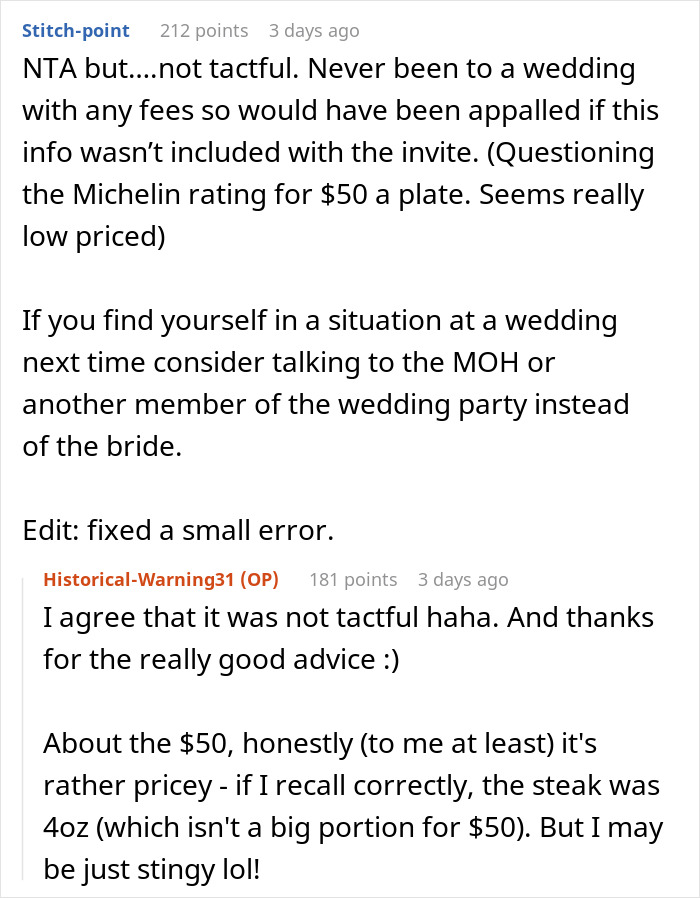





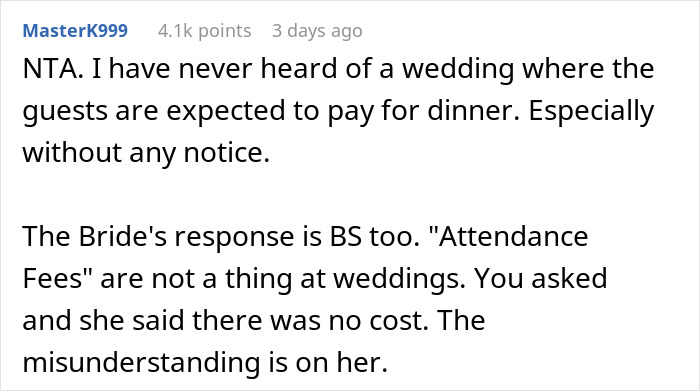
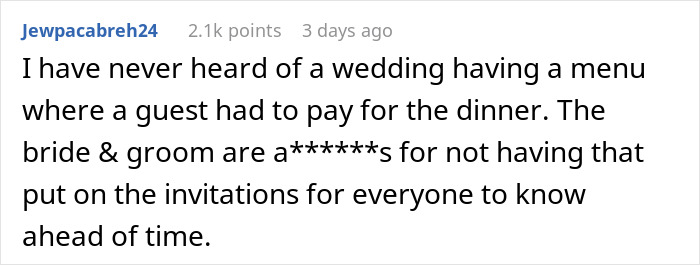
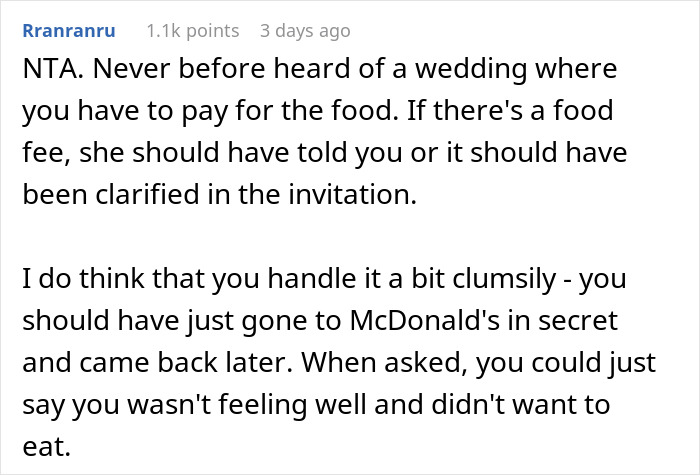
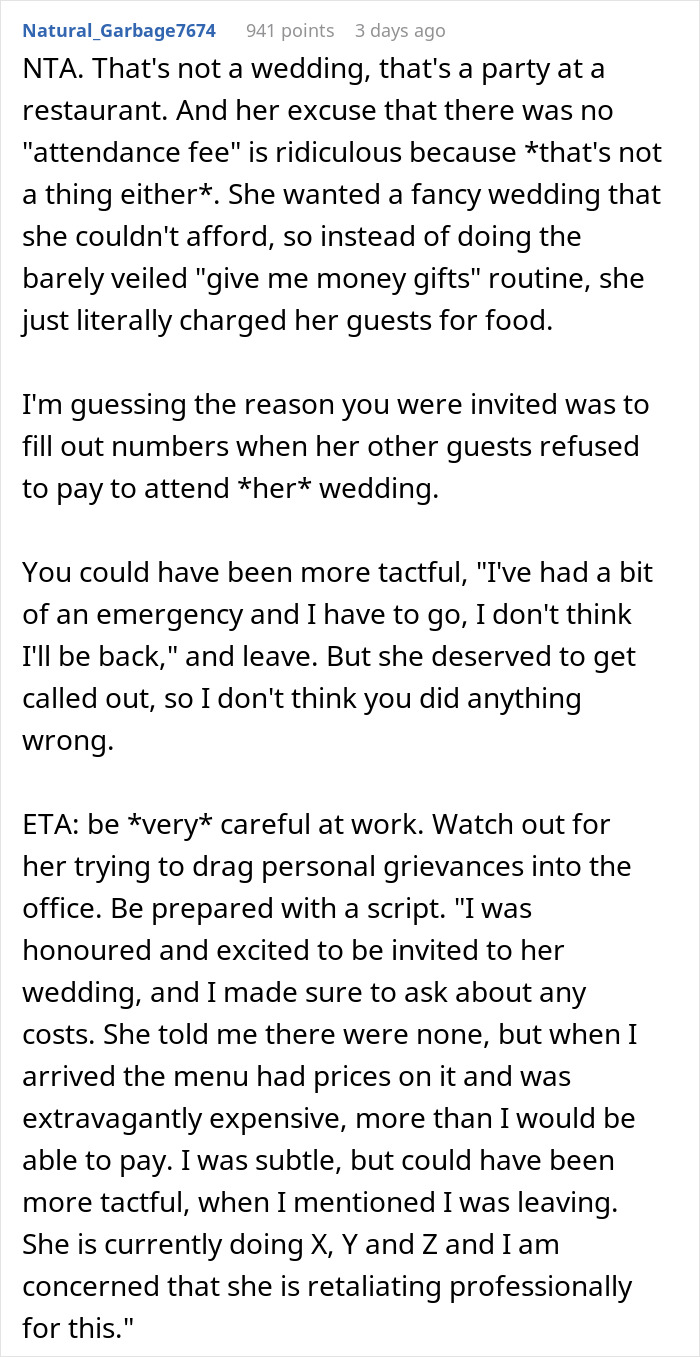
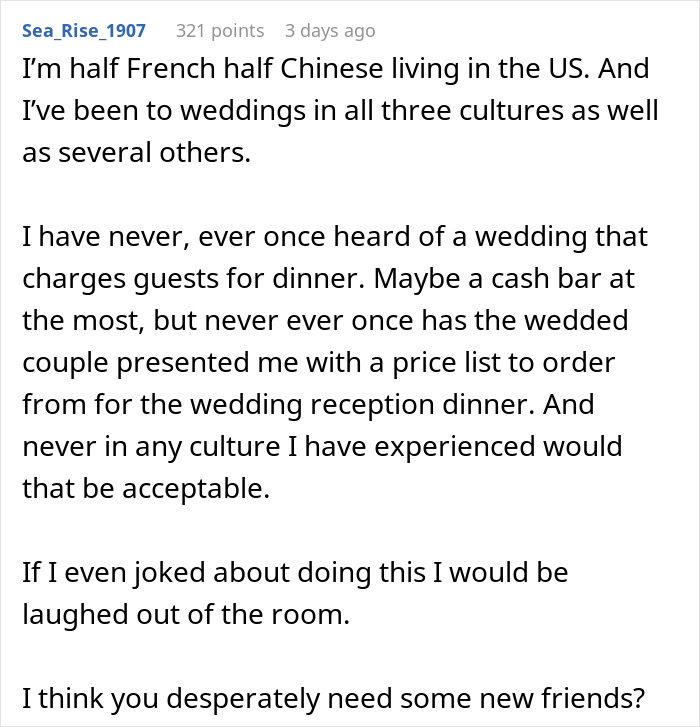
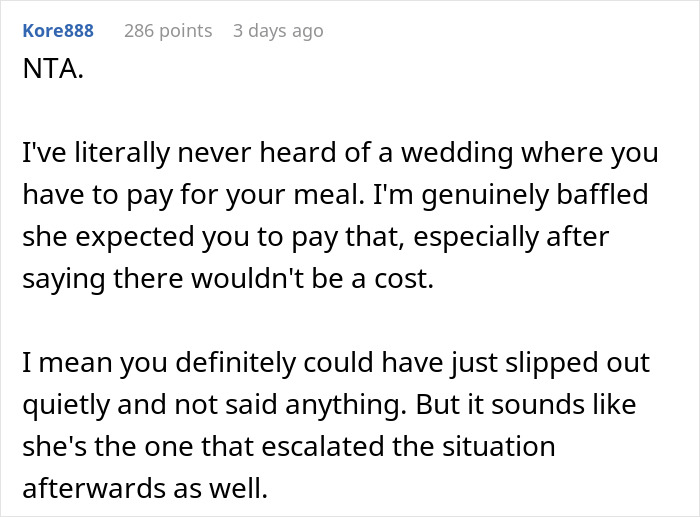



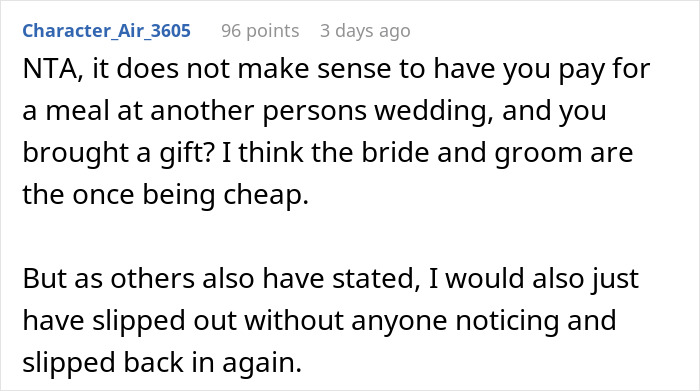
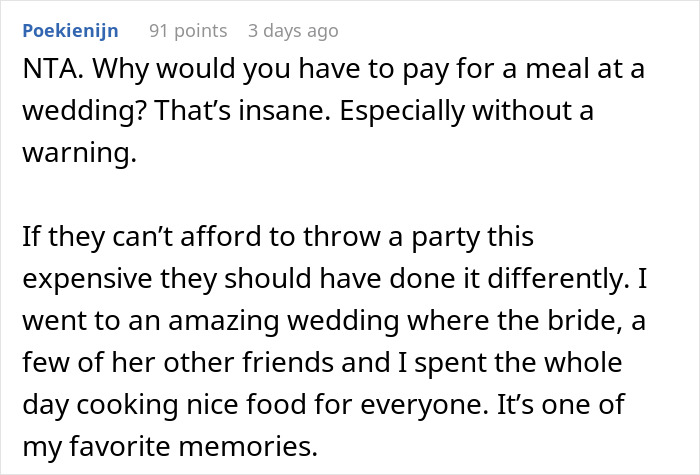

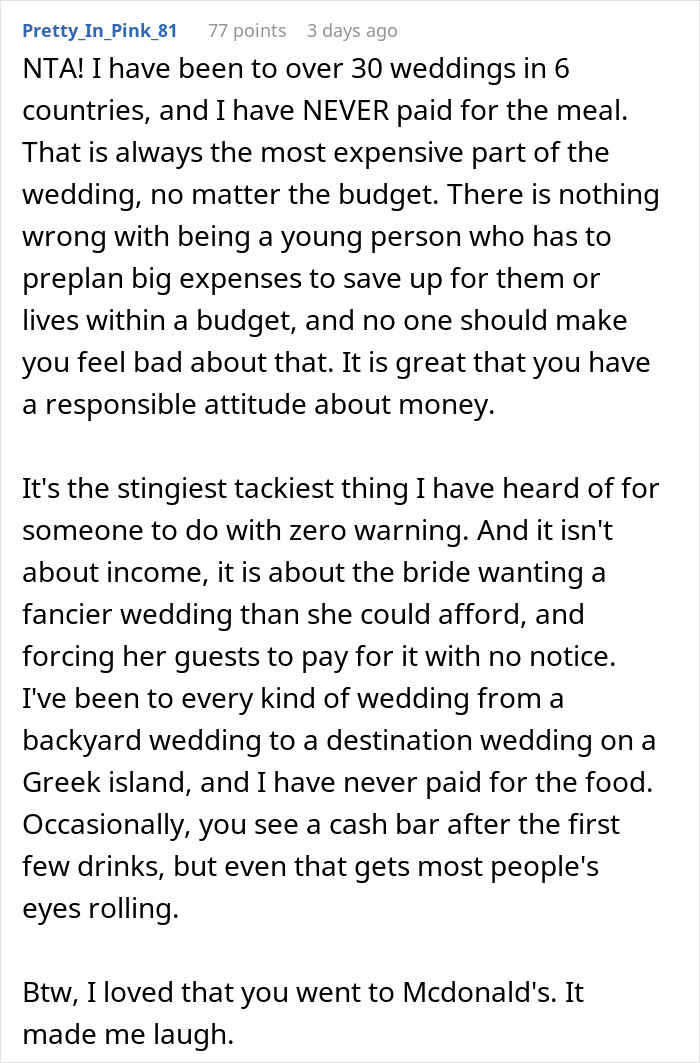


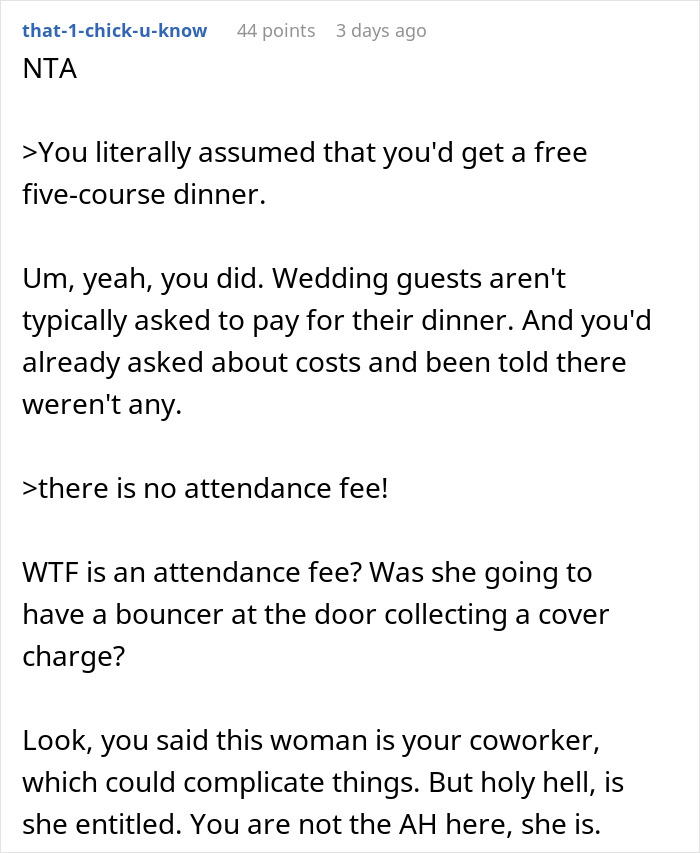









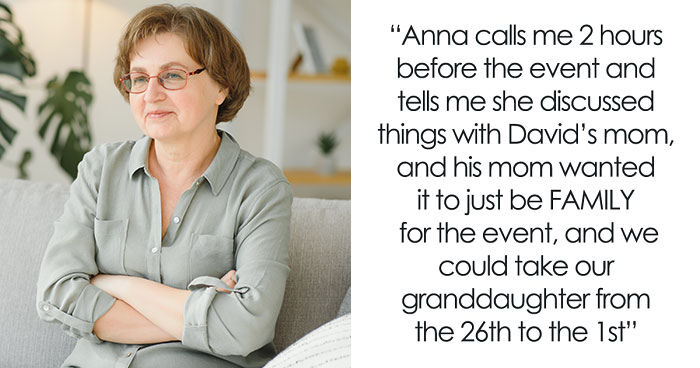


































62
67